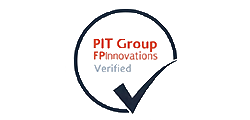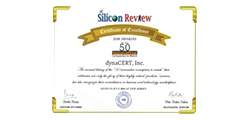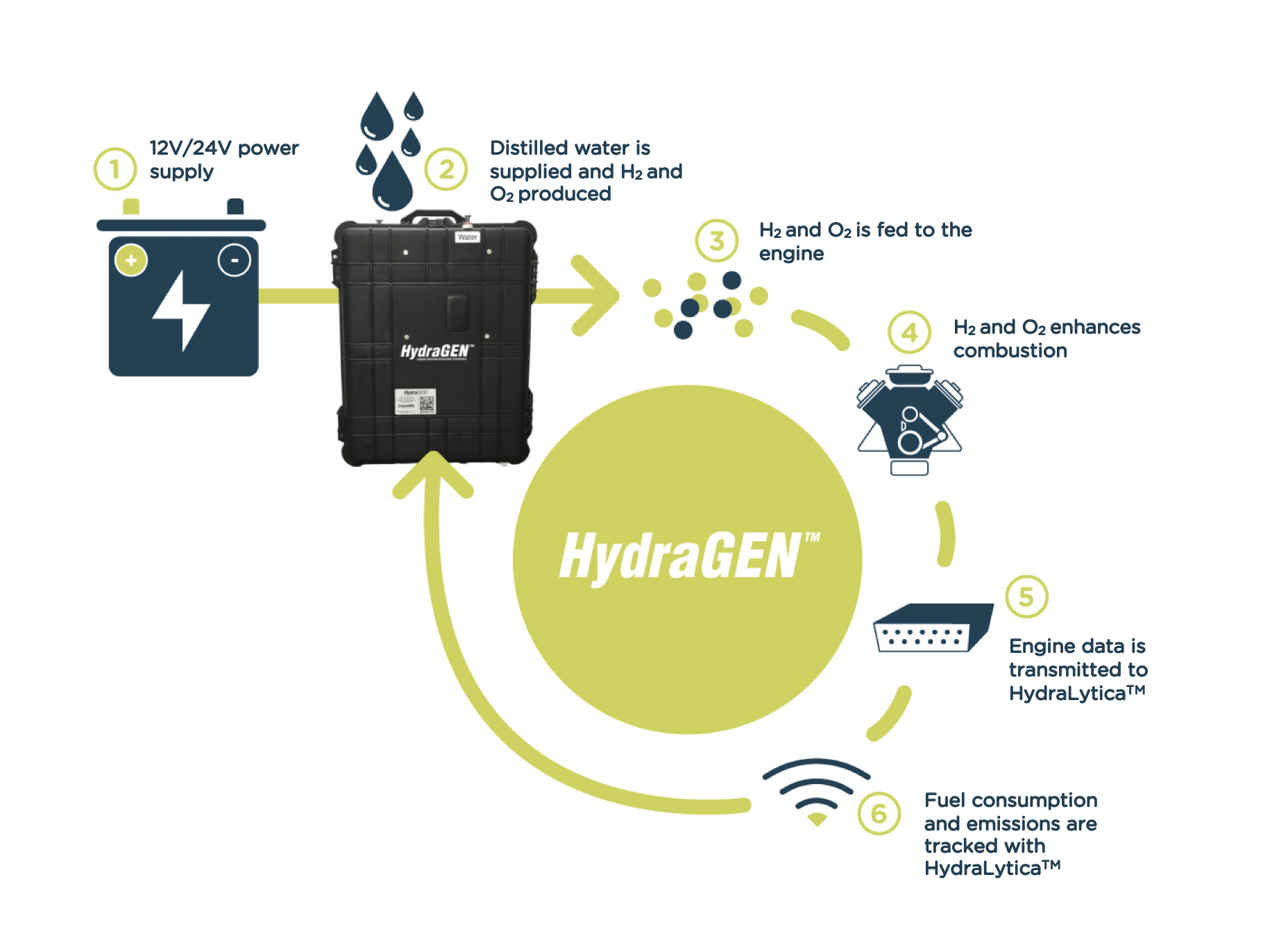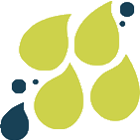HydraGEN™ is a smart electrolysis technology for producing and adding hydrogen (H2) and oxygen (O2) into the air intake of a diesel engine on demand. Thanks to this technology the consumption of diesel fuel is improved and harmful emissions are reduced. Only distilled water is used in this technology: 5 litres of distilled water is sufficient for about 5000 km driving at an average speed of 70 km/h.
The HydraGEN™ technology is designed to turn distilled water to hydrogen gas (H2) and oxygen gas (O2) by way of electrolysis of water. Gases enter the air intake system of a diesel engine by producing a homogeneous air mixture just before combustion. Hydrogen gas strengthens combustion creating quicker and more complete combustion in the cylinder. The more complete combustion ensures more efficient use of fuel and lower emissions. A comprehensive control system collects pollution and fuel saving data.
























